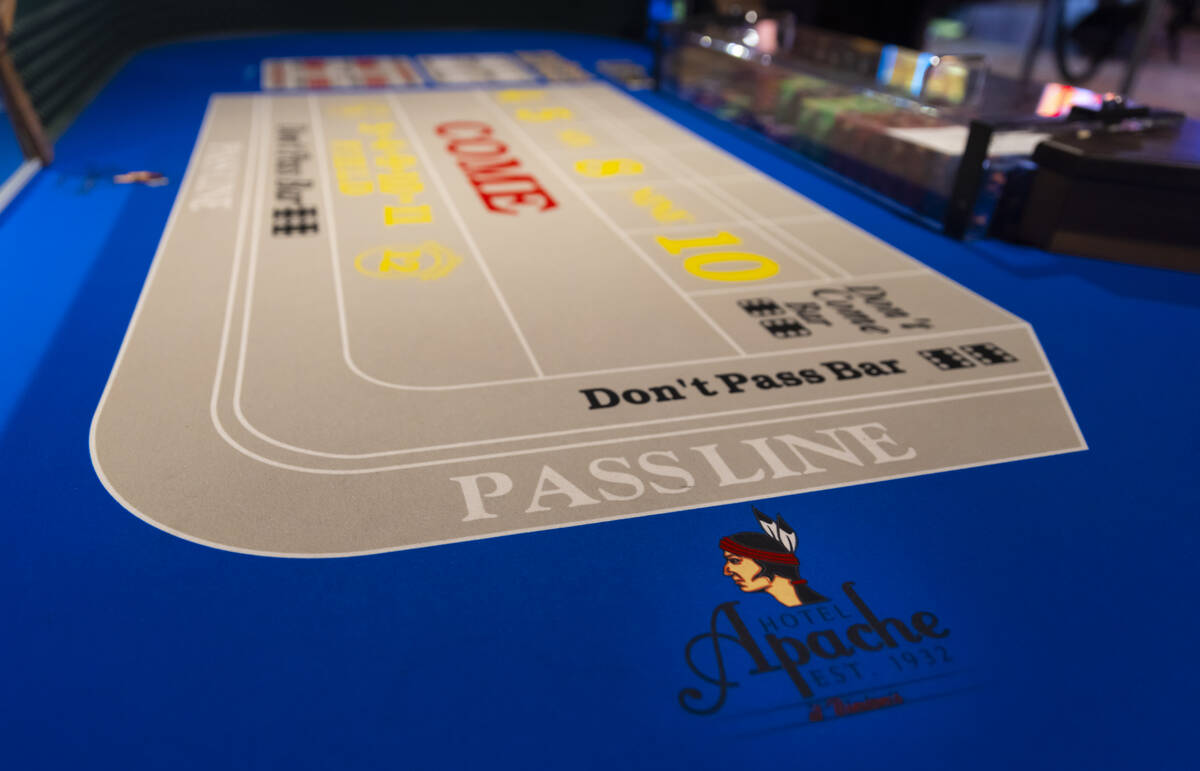Learn to play craps before going to the casino

Craps can be one of the most intimidating games in Las Vegas casinos. But, because of its potential to quickly generate significant winnings for players, craps is, arguably, the most exciting game on the casino floor.
Learning the basic rules, strategies and concepts of craps can be a rewarding experience.
“It’s like no other game in the casino,” said David Noll, co-founder and CEO of Casino Quest, a Las Vegas-based business that teaches the public how to play casino games without risking real money. “When we teach dice, we tell people (to strive for) 10 times (their) bankroll. That’s what you want to walk with. And that’s the opportunity that craps has. It’s the only game like it in the casino.”
There is another aspect to craps that makes it unique among casino games. Unlike other games, where a player makes money only for themselves, a craps table can be a communal earning space on the casino floor.
A shooter — the person rolling the dice — on a hot streak can make everyone at the table a lot of money.
“Craps is a very social game. It has a social dynamic that doesn’t exist anywhere else in the casino,” Noll said. “As a collective game, as a community game, there’s literally nothing like it.”
There are many strategies for how to play craps, some of which require a large bankroll, a great deal of self-discipline and, as always, a bit of luck. Others require a player to throw caution to the wind and bet big with the hopes of cashing out for even more.
Primer on how to play craps
The basic premise of craps is simple. Everyone at the table is betting on the roll of the dice.
Two dice are used in craps, creating a set number of possible outcomes that will result in a roll of anywhere between the numbers two and 12. There are 36 possible combinations.
When rolling two dice, the number seven has the most potential combinations (6), six and eight each have five ways to create them, five and nine both have four, four and 10 have three, three and 11 have two and, finally, two and 12 can be rolled only one way.
A craps table is divided into sections for various types of bets, including Pass/Don’t Pass, Come/Don’t Come, Field and individual boxes for certain numbers.
In most casinos, a player must have a wager on either the Pass or Don’t Pass lines to be the shooter.
A new craps game begins on the come out roll. If a four, five, six, eight, nine or 10 are rolled on the come out, that number becomes the point. The object of the game is then to roll that number again before rolling the number seven, otherwise known as “Big Red.”
Point of order: it is considered poor taste to say the word “seven” while standing at a craps table.
A player with a Pass line bet wins if the point is rolled before a seven, while a player with a Don’t Pass line bet wins if the seven appears first.
“When you bet the Pass line, you’re betting with the sh ooter,” said Noll. “If you bet on the Don’t Pass, it’s considered the ‘dark side’ and you’re betting against the shooter.”
The Come bet is similar to a Pass bet, except the number needed to win is determined after the come out roll and before the next seven. Vice versa for a Don’t Come bet where the wager is on a seven being rolled first.
Players can also take true odds on Pass/Don’t Pass and Come/Don’t Come bets. The house edge for taking odds in craps is zero percent, making it the only such bet on the casino floor.
“Odds themselves are a great bet because they pay exactly what they’re supposed to pay. It’s the only bet in the casino where you’re getting exactly what you’re supposed to,” said Noll.
Different casinos offer different odds, so be sure to check the table detail card or ask the dealers.
The field is what is known as a next-roll bet. The field is an all-encompassing bet on the numbers two, three, four, nine, 10, 11 and 12. There are 16 ways to win the field bet and 20 ways to lose it.
Players can also bet on specific numbers being rolled (buy or place) or against numbers being rolled (lay).
There are four hardways bets available, which are the result of doubles being rolled, resulting in four (2-2), six (3-3), eight (4-4) and 10 (5-5).
One-roll bets are wagers that must hit on the very next roll in order to win. Examples of on-roll bets include two (“snake eyes”), three, 11 and 12 (“box cars”). Any seven — the combinations of 2-5, 3-4 or 6-1 — is another one-roll bet.
Hop bets — wagers on the exact combination of the dice — and horn bets — any combination resulting in two, three, 11 or 12 — are also one-roll bets.
David Danzis can be contacted at ddanzis@reviewjournal.com or (702) 383-0378. Follow AC2Vegas_Danzis on X.